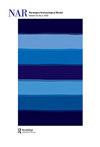与死者在一起的世界水域
IF 1.1
3区 历史学
0 ARCHAEOLOGY
引用次数: 0
摘要
本文研究了人工制品和身体遗骸在湖泊、河流和沼泽等水域的沉积。这项研究借鉴了批判的女权主义后人道主义理论,并探讨了尸体政治如何与可杀动物的主体形成联系在一起,从而考察了不断变化的人与动物关系及其与所处环境的联系。本文追溯了死者的批判性制图,以及死者如何在生成和生动的世界实践中合作。这是通过调查一些关系来完成的,这些关系是通过这样的证词联系在一起并解除的。它处理了关于牺牲和水的人格的问题,以及关于生态如何成为活的或死的问题。本文章由计算机程序翻译,如有差异,请以英文原文为准。
Worlding Waters with the Dead
This paper deals with the deposition of artefact and bodily remains in watery places, such as lakes, rivers and bogs. The research draws on critical feminist posthumanist theory and engages in questions on how necropolitics were linked to the subject formation of the killable, thereby examining changing human-animal relations and their links to situated environments. The paper traces the critical cartographies of the dead and how the dead co-worked in generative and lively worlding practices. This is done by investigating some of the relations that were tied together and undone through such deposition. It deals with questions around sacrifice and the personhood of waters and matters around how ecologies become alive or dead.
求助全文
通过发布文献求助,成功后即可免费获取论文全文。
去求助
来源期刊

Norwegian Archaeological Review
ARCHAEOLOGY-
CiteScore
2.10
自引率
0.00%
发文量
13
期刊介绍:
Norwegian Archaeological Review published since 1968, aims to be an interface between archaeological research in the Nordic countries and global archaeological trends, a meeting ground for current discussion of theoretical and methodical problems on an international scientific level. The main focus is on the European area, but discussions based upon results from other parts of the world are also welcomed. The comments of specialists, along with the author"s reply, are given as an addendum to selected articles. The Journal is also receptive to uninvited opinions and comments on a wider scope of archaeological themes, e.g. articles in Norwegian Archaeological Review or other journals, monographies, conferences.
 求助内容:
求助内容: 应助结果提醒方式:
应助结果提醒方式:


